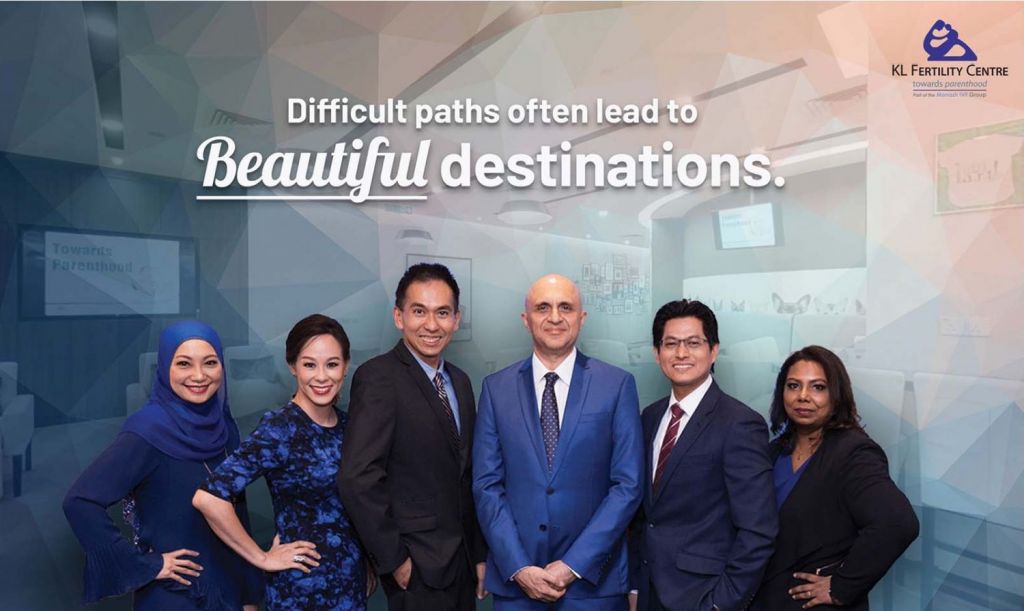Malaysian women are having children later in life. Based on reports from the Department of Statistics (DOSM), from 2001 to 2019, the average age of first-time mothers rose from 26.6 years old to 27.8 years old. This means that on average, women in Malaysia are becoming mothers at a later age.
Women are delaying motherhood for a number of reasons such as focusing on education, career and lifetime goals, building a financial safety before starting a family or due to medical conditions like endometriosis and cancer treatments.
Whatever the reason, it is important for women who would like to become parents to start planning for the future now and gain an accurate understanding of their bodies. Many options are now available to help them plan to have kids later in life, such as Anti-Müllerian Hormone (AMH) testing and egg freezing.
Ovarian Reserve
According to studies, women in their 30’s have significantly reduced fertility. While this rate of decline varies from person to person, numerous studies have established that women in the 30’s age group will experience a decline in their ovarian reserve.
Ovarian reserve or egg count refers to the number of eggs a woman has in her body to be fertilised. A woman is born with an average total of about 2 million eggs, which is the amount of eggs she will have in her lifetime. This number will decline throughout her life after a spike during puberty.
The ovarian reserve test such as the AMH test will accurately estimate a woman’s potential for conceiving in the present and in the future. An AMH test is a simple blood test to determine the levels of AMH present in a woman’s body. The AMH is a protein that is produced by the developing egg. The more eggs you have in the ovary, the higher the level. Conversely, very low values indicate very low egg numbers and fertility. In short, the test will give women an indication on their remaining fertile years.
Fertility Preservation
Fertility preservation via egg freezing is one option for young women who wish to plan for future motherhood. Every month, women lose a certain number of eggs in their menstrual cycle. If becoming a mother in the future is very important to you, and your AMH test indicates that you have a very low egg count, you may consider freezing your eggs so as to have the option of fertilising them later.
The egg freezing process involves an initial assessment to evaluate the quality and quantity of your eggs, followed by the ovarian stimulation, egg retrieval and egg freezing process. Based on scientific data, there is no damage that results from the long-term storage of frozen eggs. Human eggs can likely remain frozen and viable indefinitely.
A More Convenient Option
Currently, around 50 million couples worldwide are affected by infertility, and around 15 per cent of women of reproductive age face fertility issues. Before the AMH testing was introduced, the most common option was the trans-vaginal ultrasound scan. In comparison to that, the AMH test is by far the more comfortable and accurate option.
Ultimately, young women should know that there are options for them to plan for the future when it comes to their education, career, and family life. The best way to know what their fertility options are to consult a reputable expert to help them in their journey to future parenthood.
At The Forefront Of Fertility Expertise For Over A Decade
KL Fertility Centre’s team of experts offer the assurance of continuous improvements in the procedures and outcome of all fertility treatments provided for those trying to conceive.
KL Fertility Centre has been at the forefront of fertility expertise for over a decade, helping couples across the country be blessed with a child. Multiple treatment options are available, each one carried out with care for the sole intention of achieving a successful pregnancy with the least possible risks.
Treatment options available are In Vitro Fertilization (IVF); Intracytoplasmic Sperm Injection (ICSI); Intrauterine Insemination (IUI); Frozen Embryo Transfers (FET); Fertility Preservation which include egg freezing as well as sperm freezing, AMH Testing and Pre-implantation Genetic Testing.
KL Fertility Centre is a subsidiary of the Monash IVF Group, a leading Australian IVF group, and is internationally certified by the Reproductive Technology Accreditation Committee (RTAC) – a subcommittee of the Board of The Fertility Society of Australia. Therefore, there is an assurance of continuous improvements in the procedures and outcome of all treatments provided for those trying to conceive at KL Fertility Centre.
Identification and traceability methods are meticulously carried out to prevent mismatches of specimens for couples undergoing treatments.
The Centre, acknowledged as the winner of Natural Health Readers’ Choice 2019 Awards in the Fertility Treatment category, prioritises in providing a wide range of high quality state-of-the-art assisted reproductive technology treatments to avoid any medical incidence such as ovarian hyperstimulation syndrome and to reduce risks associated with multiple pregnancies.
Having met the high standards set by RTAC, the Centre assures that all treatments and processes are managed by fully qualified and competent staff from the first day of the couple’s journey towards parenthood.
For more information about KL Fertility Centre and the treatments offered, visit their website at www.klfertility.com and their Facebook page at www.facebook.com/kIfertilitycentre.

















